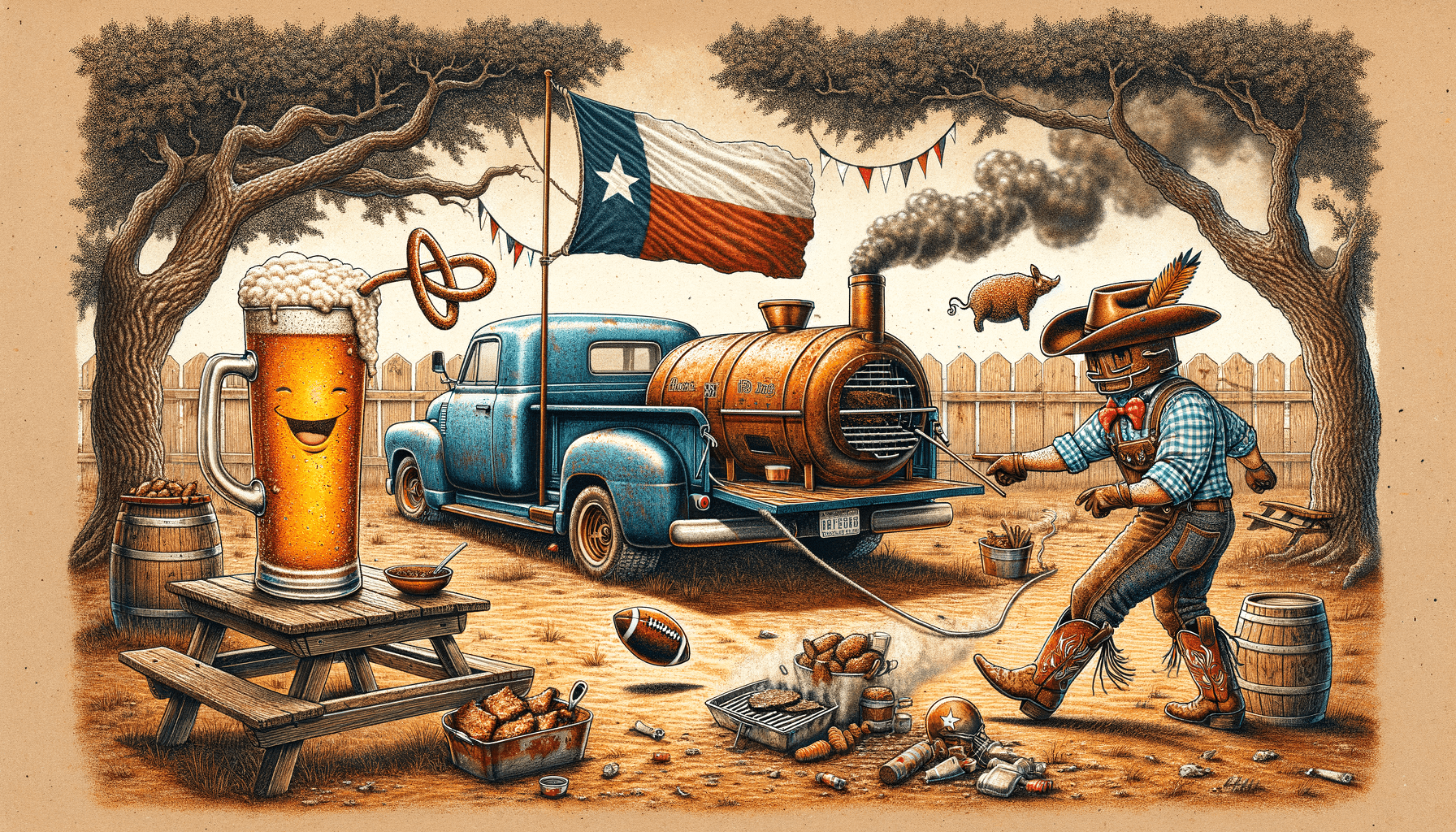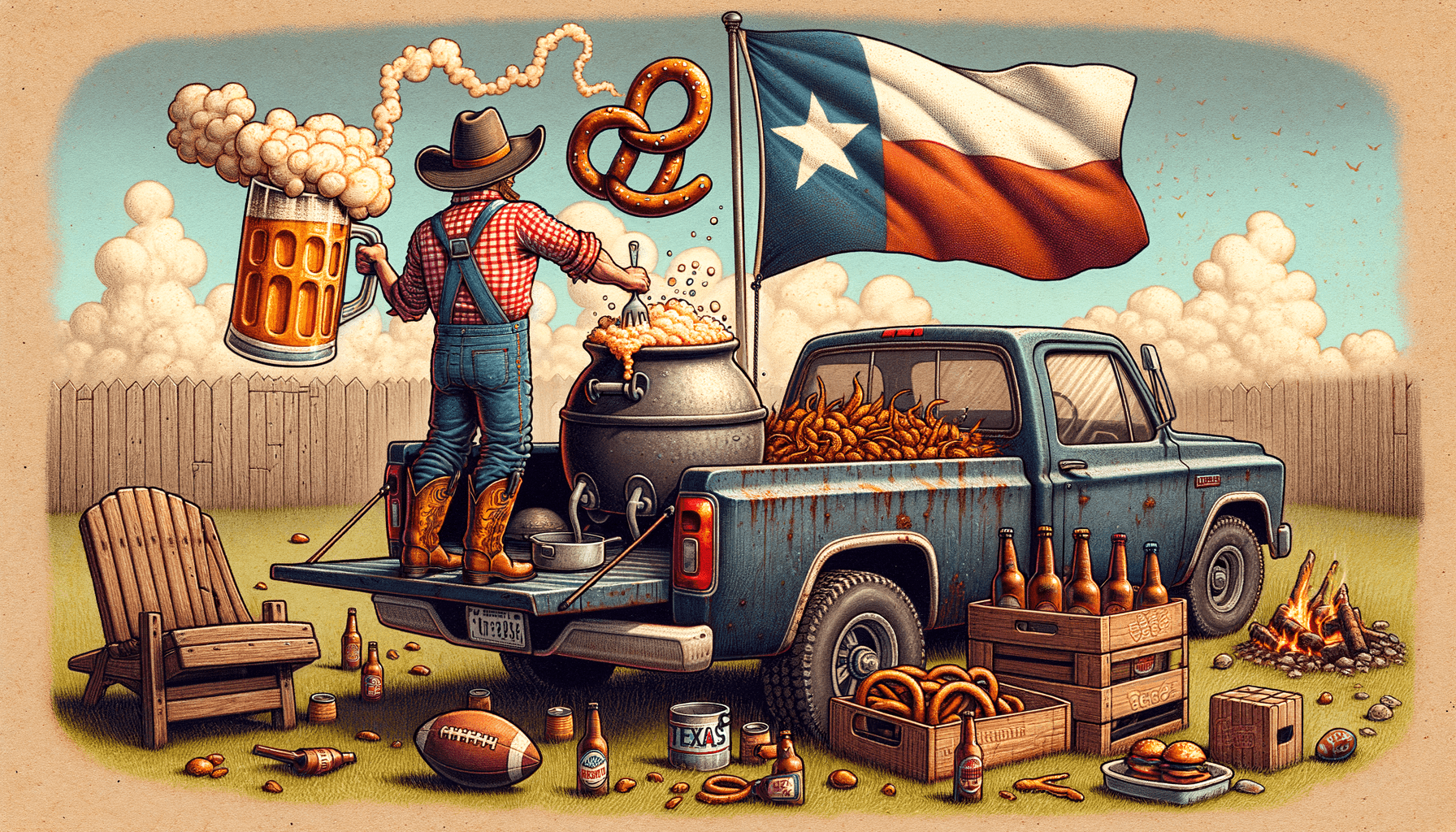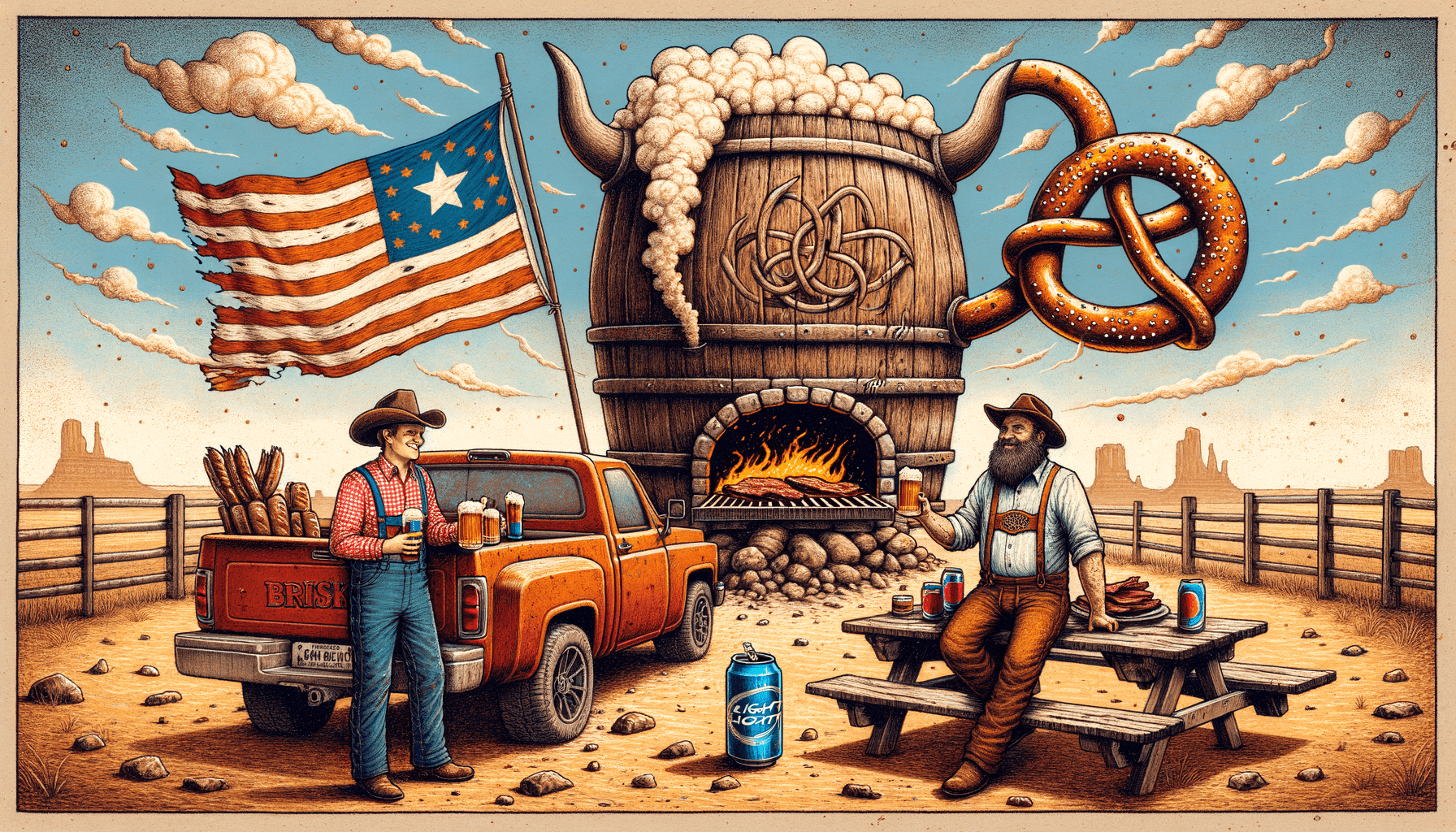Ja mei, here we go again. Somebody slides me a Bud Light at a Texas BBQ, and I look at it like a mechanic handed me a toy wrench from a Kinder Surprise. Ach so, it’s wet, sure—but that doesn’t mean it counts as Bier. So, let’s talk real brewing, meine Freunde. Let’s talk Bavarian.
Reinheitsgebot – The Old-School Beer Sheriff
In 1516, while America was still thinking about buffalo and campfires, Bavaria wrote down the Reinheitsgebot: the German Beer Purity Law. Only Wasser, Hopfen, Malz, and later Hefe allowed. No corn syrup. No “natural flavoring” mystery juice. Definitely no pumpkin spice, du liebe Zeit! Just the basics, nothing else. And yet, the flavors? Complex like barbecue smoke drifting in Hill Country air.
That’s why a Tegernseer Spezial or Hacklberger Helles tastes balanced, clean, smooth—like a Texas brisket cooked low and slow versus microwaved hot dogs. You understand?
Bavarian Classics That Put Texas Coolers to Shame
- Tegernseer Spezial – Golden, crisp, and smoother than Willie Nelson’s guitar strings. A perfect example of why simple ingredients, crafted right, make magic.
- Hacklberger Helles – Mellow malt backbone, gentle hops; it’s like sitting under a Texas oak tree on a Sunday. Nothing fancy, just real and honest.
- Jandelsbrunner Bier – A small-town gem, brewed with pride like grandma’s secret chili recipe—but without the beans, bitte schön! Strong regional love.
- Weihenstephan Dunkles Hefeweizen – Dark wheat goodness, banana-clove aromas wrapped in a malty blanket. Oldest brewery in the world still doing it right, while your mass-market light lager can’t even keep flavor past the second sip.
Brewkraut’s Box
- What’s the deal: German beer follows strict rules, centuries of tradition, and still tastes different brewery to brewery. America’s macro lagers chase “lighter than water” trophies, but the craft scene here is catching up.
- What’s nonsense: Adding coffee, donuts, or bacon grease to your Bier. Nice idea maybe for a novelty taproom flight, but not for daily drinking.
- Prost-finale: If your beer is so thin that a mosquito could drown and still walk it off sober, maybe it’s not worth drinking.
Texans Love Beer – But Let’s Talk Quality
Now I give Texans credit: you drink a lot of beer, and you take it to football games, BBQ pits, or floating down rivers. Jawoll, that’s living! But too often it’s just cans of fizzy nothingness. Bud Light, Coors, Miller—cheap and cold, ja, and hey, they get the job done. But do they sing? Bavarian beers, they sing. They hum, they waltz on your tongue, like Oktoberfest in your mouth.
But don’t worry, America’s craft brewers are learning. I’ve had some fine IPAs in Austin, and a few stouts in Houston that could knock your boots off. The difference? Germans kept the tradition tight for 500 years. The Reinheitsgebot was like a coach hollering: “Stick to fundamentals, no fancy nonsense!” Americans are more like backyard grillers tossing everything on: jalapeños, pineapple, peanut butter. Sometimes genius, sometimes disaster.
Why Germans Care So Much
Beer is not just a drink in Bavaria. Beer is bread you can sip, a handshake in a glass, liquid heritage. Every village has its brewery, every festival its own Bier. At Sunday Stammtisch, the local beer tells you where you are. That’s why even a small-name like Jandelsbrunn stands proud against the giant factory beers of the world.
In Texas, branding rules: Lone Star tastes like pride in a can—but let’s be honest, it’s mostly pride. In Bavaria, taste comes first, then pride follows.
Final Sip
So next time someone hands you a light beer at the BBQ, remember: you don’t have to be German to demand quality, you just have to be a little stubborn. Think Reinheitsgebot instead of rainbow-flavored gimmicks. Choose beers that tell a story, not just whisper “cold” on the label.
And if you ever taste a Weihenstephan Dunkles on a hot Texas night? You’ll forget Bud Light even exists, and maybe—just maybe—you’ll start calling your cooler a Bierkeller.
Prost, y’all… and leave the pumpkin spice out of it.



